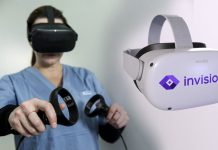Silicon Valley has spent many years promising to upset the $3.5 trillion healthcare industry.
In 2018, investors from the Bay Area, Boston and elsewhere spent billions of dollars into the healthcare sector, funding start-ups and businesses that aim to bring down the healthcare costs while improving the quality and access to the providers. Some of the latest trends include wearables, virtual care solutions, medication management apps, and new digital tools that help physicians and patients.
Digital health sounds great. It is supposed to improve all industries. However, it raises an important question when it comes to healthcare. Why people are not getting healthier?
According to the recent reports from the Centers for Disease Control and Prevention, the life expectancy has been reduced for the first time in decades. Alcoholism, illicit use of drugs, opioid epidemic, and suicide; all are to be blamed. Surprisingly, millennials are also overweight to a great level. And despite so many anti-tobacco campaigns, smoking still continues to be a major problem, causing premature deaths.
Researchers opine that the technologies are still new. Most of the investment in digital health started approximately five to seven years ago. Prior to that, many physicians were still using paper documentations. They further added that it will take time to get the digital health on board and the benefits of the new tools will not be realized for a long time. Furthermore, they explained that it is really hard to elicit the impact of digital health.
Healthcare spending and venture spending are not going to the same places. Maybe the targets are wrong. Experts reckon that the most expensive people to treat are those who have chronic medical conditions such as heart disease and diabetes. However, the digital health industry is after younger and relatively fit/healthy people who look for premium healthcare and want to track their diet and workouts. For instance, wearables and smart-watches that cost hundreds of dollars, which are used by younger and healthier individuals.
And what about people who do not have enough access to an internet connection and social support? They also lack money to buy such expensive gears.
Technology will never replace humans. Companies are trying to develop apps that can virtually treat patients. You cannot teach a robot to treat patients. Physicians and health coaches are expensive.
Smartphone notifications and certain gaming techniques have some limitations. Changes in medications are notoriously hard and are too challenging in most cases for a mobile app to solve. People who are already healthy are attracted towards digital health. It has been found that people who are affected by chronic illnesses do not use digital health. Experts reckon that bringing about change in patients with diabetes, heart disease, and other chronic illnesses is a bit complicated and may take multiple attempts to convince them.






















